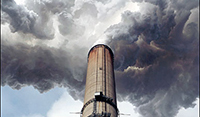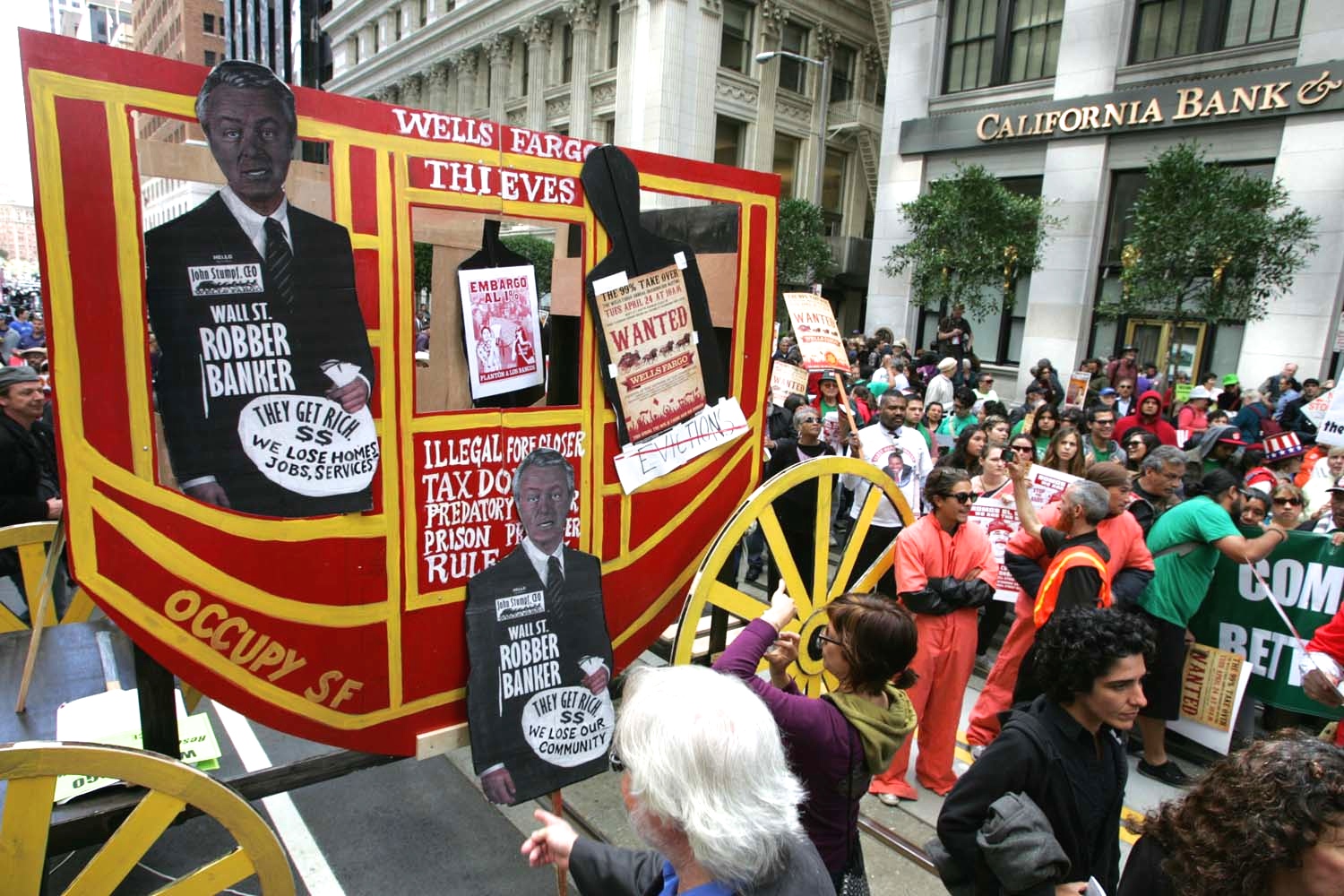 In the early days of the Trump era, there was speculation that the new administration would be tough on corporate crime. Attorney General Jeff Sessions gave a speech in April 2017 in which he vowed that his Justice Department “will continue to investigate and prosecute corporate fraud and misconduct; bribery; public corruption; organized crime; trade-secret theft; money laundering; securities fraud; government fraud; health care fraud; and Internet fraud, among others.’ He added that DOJ has “a responsibility to protect American consumers.”
In the early days of the Trump era, there was speculation that the new administration would be tough on corporate crime. Attorney General Jeff Sessions gave a speech in April 2017 in which he vowed that his Justice Department “will continue to investigate and prosecute corporate fraud and misconduct; bribery; public corruption; organized crime; trade-secret theft; money laundering; securities fraud; government fraud; health care fraud; and Internet fraud, among others.’ He added that DOJ has “a responsibility to protect American consumers.”
A new report from Public Citizen and the Corporate Research Project of Good Jobs First called Corporate Impunity shows just how hollow that promise was. Based on data from Violation Tracker, it shows that during the first year of the Trump Administration there was a substantial drop in regulatory enforcement and prosecution of corporate criminal offenses. In contrast to the zero-tolerance attitude toward migrants and refugees, the administration is showing considerable indulgence when it comes to corporate offenders.
In making a comparison to the previous administration, it is worth recalling the mixed record of the Obama years. That administration had a poor record with regard to holding top corporate executives personally responsible for serious offenses such as the abuses leading to the financial meltdown and the Deepwater Horizon oil spill disaster in the Gulf of Mexico. It continued the misguided policy of offering corporate miscreants deferred-prosecution and non-prosecution agreements.
Yet at least the Obama Administration took steps to increase the financial penalties levied on corporations for their misdeeds. For the first time, billion-dollar fines and settlements became a common occurrence.
Corporate Impunity judges the Trump Administration by that same measure—the level of monetary penalties imposed on companies. It finds, for example, that such penalties imposed by the Trump DOJ in its first year were less than one-tenth the level in each of the last two years of Obama.
The report limits its analysis of regulatory agencies to those which were headed by a Trump appointee for most of 2017. Of the 12 agencies examined, ten showed a decline in the number of enforcement actions. In some cases, those drops were steep. The Federal Trade Commission and the Securities and Exchange Commission had decreases of more than 40 percent, and five others dropped more than 25 percent.
For some agencies, the decline in the number of cases was much less severe than the drop in penalty amounts. At the Environmental Protection Agency, for example, the caseload in Trump’s first year was down 12 percent while the penalty total plunged more than 90 percent.
The results for Trump’s second year are likely to be even more dismal once results are tabulated for agencies such as the Consumer Financial Protection Bureau, which racked up an impressive record during the Obama years and attempted to do the same under Trump until the agency was captured in late 2017 by the White House and subsequently neutered.
Trump’s enforcement record shows that he really is a populist—a corporate populist creating a society in which large companies reign supreme and in many ways are above the law.
 Donald Trump and the rightwing fringe never tire of talking about supposed deep state plots. Yet if there is any conspiracy going on, it is the seeming attempt to remove any checks on the power of large corporations.
Donald Trump and the rightwing fringe never tire of talking about supposed deep state plots. Yet if there is any conspiracy going on, it is the seeming attempt to remove any checks on the power of large corporations. The passengers who survived Southwest Flight 1380’s engine explosion are feeling lucky to be alive and grateful for the skilled landing executed by pilot Tammie Jo Shults. Another group feeling relief are the top executives of Allegiant Air. If the accident had happened to one of their planes, the carrier’s survival might be in question.
The passengers who survived Southwest Flight 1380’s engine explosion are feeling lucky to be alive and grateful for the skilled landing executed by pilot Tammie Jo Shults. Another group feeling relief are the top executives of Allegiant Air. If the accident had happened to one of their planes, the carrier’s survival might be in question. The SEC’s enforcement action against Theranos Inc. and its founder Elizabeth Holmes puts a new focus on the persistence of corporate crime in the healthcare sector after a period in which the business culprits getting the most attention were banks such as Wells Fargo and automotive companies such as Volkswagen and Takata.
The SEC’s enforcement action against Theranos Inc. and its founder Elizabeth Holmes puts a new focus on the persistence of corporate crime in the healthcare sector after a period in which the business culprits getting the most attention were banks such as Wells Fargo and automotive companies such as Volkswagen and Takata. Bipartisanship has returned to Washington, thanks to the overwhelming desire of Republicans and quite a few Democrats to roll back portions of the Dodd-Frank Act. Ten years after the onset of the financial meltdown and seven years after the law went into effect, the relentless efforts of the banking lobby seem to be paying off.
Bipartisanship has returned to Washington, thanks to the overwhelming desire of Republicans and quite a few Democrats to roll back portions of the Dodd-Frank Act. Ten years after the onset of the financial meltdown and seven years after the law went into effect, the relentless efforts of the banking lobby seem to be paying off. At a moment when there is all too much talk in Washington about deregulation, a helpful counterpoint has arrived from the Political Economy Research Institute in the form of the latest edition of the
At a moment when there is all too much talk in Washington about deregulation, a helpful counterpoint has arrived from the Political Economy Research Institute in the form of the latest edition of the 
 It’s unclear to what extent the Obama Administration’s practice of extracting unprecedented monetary penalties on miscreant companies proved to be an effective deterrent, but at least the billion-dollar fines and settlements served to highlight the ongoing problem of corporate crime.
It’s unclear to what extent the Obama Administration’s practice of extracting unprecedented monetary penalties on miscreant companies proved to be an effective deterrent, but at least the billion-dollar fines and settlements served to highlight the ongoing problem of corporate crime. The federal response to corporate misconduct over the past two decades has alternated between tougher monetary penalties and the promotion of voluntary measures to lure companies into behaving better. Neither has worked very well.
The federal response to corporate misconduct over the past two decades has alternated between tougher monetary penalties and the promotion of voluntary measures to lure companies into behaving better. Neither has worked very well. The year began with a burst of announcements by the Obama Administration of cases it rushed to resolve before leaving office. In the period between election day and the inauguration, the Justice Department and various agencies announced
The year began with a burst of announcements by the Obama Administration of cases it rushed to resolve before leaving office. In the period between election day and the inauguration, the Justice Department and various agencies announced
You must be logged in to post a comment.